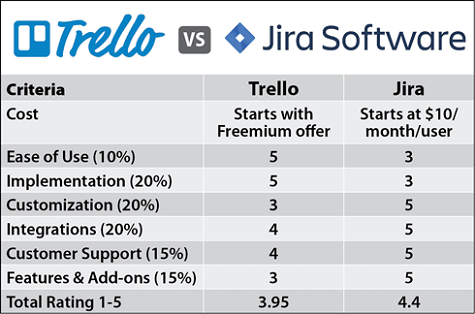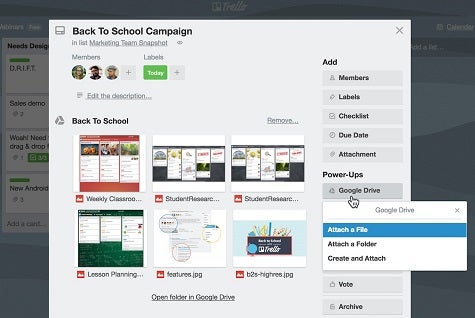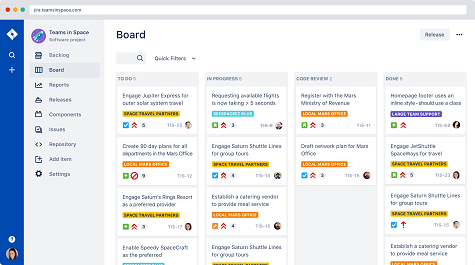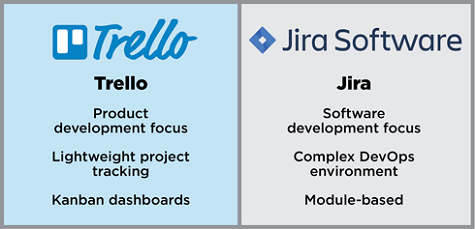It’s rare when two offerings from the same company broadly address many of the same issues. But following the acquisition of Trello by Atlassian in 2017, two distinct classes of project management software come from the same vendor because Atlassian also owns Jira.
Trello is a software-as-a-service (SaaS) application typically employed by teams of people working in, for example, product development. In contrast, Jira is specifically designed to foster collaboration among developers working on the same project, usually within the context of a set of well-defined DevOps processes. In fact, there’s nothing to preclude an organization from employing both applications, as ideas for new products are passed on to developers that hopefully will be able to turn those concepts into application reality.
Of course, the need to provide some structure around how projects should be managed is hardly a new idea. What has changed, however, is the sense of urgency organizations feel to innovate. As more business leaders come to realize that the ability of their organization to differentiate itself is deeply intertwined with their ability to turn ideas into actual digital customer experiences, it quickly becomes apparent that the difference between success and failure has as much to do with project management as it does the quality of the code that ultimately gets delivered.
Similarities & Differences Between JIRA and Trello

While technically, both Trello and Jira fall within the broad project management platform, each application addresses a fundamentally different audience. Trello is a lightweight project tracking tool delivered as a software-as-a-service (SaaS) application via a browser that makes it simpler to track task flow across everything from marketing campaigns to software development projects.
Jira is designed specifically to meet the needs of project managers working with software engineers and developers working on complex software projects. Jira consists of multiple modules, including Jira Service Desk and Jira Ops, that can be accessed as either a hosted service or deployed in an on-premises environment.
Cost
Trello Pricing
Trello provides access to a freemium account for single users, while a business-class edition of the SaaS application costs $9.99 per user per month for an annual contract, and $20.83 per user per month for the enterprise-class edition.
Jira Pricing
Pricing for Jira depends heavily on the number of modules employed and the number of users that need to access the application. Pricing for a single user either on the hosted edition or deployed on-premises starts at $10 per user per month.
Ease of Use
Trello relies heavily on what are known as Kanban-style dashboards that make it easier to visualize the relationship between the different tasks that make up a project.
Jira is designed for professional project managers trying to cope with the complexities of application development projects that have embraced agile development methodologies that tend to result in a lot of interdependencies between application components that need to be precisely tracked.
Trello User Interface
JIRA User Interface
Implementation
As a pure SaaS application, Trello is significantly easier to implement. However, Trello doesn’t have anywhere near the depth of project management capabilities provided by Jira, so there’s a tradeoff between simplicity and robustness that needs to be considered.
Customization
As a SaaS application, Trello provides a much more narrow range of customization options compared to a Jira environment, which is designed to adapt to whatever best DevOps practices any organization chooses to implement.
Integrations
Jira has become a de facto standard for managing software development projects so there are, not surprisingly, thousands of integrations with third-party tools and services. The most crucial of those integrations is with continuous integration/continuous development (CI/CD) platforms such at Bitbucket from Atlassian.
Trello, meanwhile, has now been integrated with over 300 external services.
Customer Support
Both Trello and Jira are supported by Atlassian. There is also a significant project management community that has developed around the Jira platform. While demand for project managers with DevOps expertise continues to outstrip supply, the number of third-party services firms providing Jira/DevOps expertise continues to rapidly expand.
Features & Add-ons
Atlassian provides access to a Jira marketplace where thousands of add-on applications can be found. The number of extensions for Trello is still measured in the hundreds. Interestingly, some of those extensions are designed to make Trello more appealing to organizations that have adopted DevOps practices.
How to decide which is Best for Your Situation
The difference between Trello and Jira comes down to the use case and complexity of the projects that need to be managed. Software development requires a robust approach to project management software to ensure that both deadlines are consistently met, and overall quality maintained. For projects that are more workgroup oriented, Trello has emerged as a lightweight project management application that is easily accessible to almost everyone.





